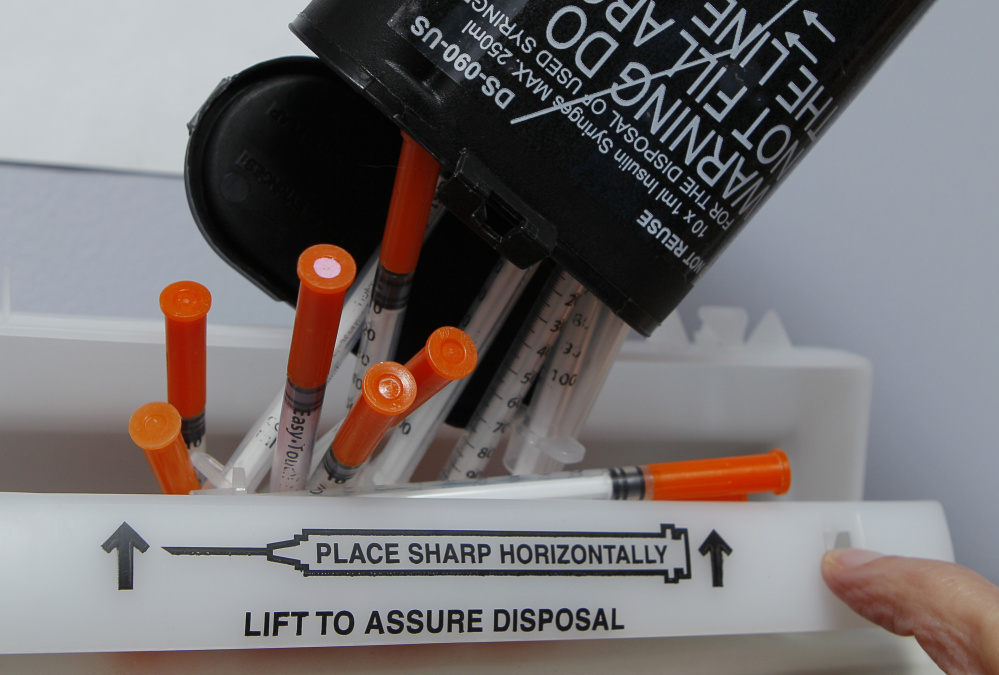Officials in Seattle on Friday approved the nation’s first “safe-injection” sites for users of heroin and other illegal drugs, calling the move a drastic but necessary response to an epidemic of addiction that is claiming tens of thousands of lives each year.
The sites – which offer addicts clean needles, medical supervision and quick access to drugs that reverse the effects of an overdose – have long been popular in Europe. Now, with the U.S. death toll rising, the idea is gaining traction in American cities, including Boston, New York City and Ithaca, N.Y.
While opponents say the sites promote illegal drug use, supporters say they can keep people alive and steer them toward treatment. They compare supervised injection facilities to the needle exchanges that became popular in the 1980s and 1990s as a way to stanch the spread of HIV and hepatitis C among intravenous drug users.
“These sites save lives and that is our goal in Seattle/King County,” Democratic Seattle Mayor Ed Murray said in a statement.
The sites are not currently legal under federal law, according to Kelly Dineen, a professor of health law at Saint Louis University School of Law. A provision of the Controlled Substances Act makes it illegal to operate facilities where drugs are used, she said.
Harm mitigation
According to the Centers for Disease Control and Prevention, a record 33,000 people died from opioid overdoses in 2015. Opioids now kill more people each year than car accidents. In 2015, the number of heroin deaths nationwide surpassed the number of deaths from gun homicides.
In addition to heroin, the deaths are caused by powerful prescription painkillers and fentanyl, a synthetic opiate so potent a tiny amount can kill people within minutes – leaving little time for help to arrive.
“If you want to really bend this curve of death, safe-injection sites are going to have to be part of the strategy,” said Jessie Gaeta, chief medical officer of the Boston Health Care for the Homeless Program, which treats many victims of overdose.
In Seattle, the King County Board of Health voted unanimously earlier this month to endorse two sites, one to be located in the city and the other to be located in the surrounding county. Murray and King County Executive Dow Constantine, a Democrat, gave them final approval Friday. In 2015, 132 people died of heroin overdoses in the county.
“We see this as a public health emergency,” said Jeff Duchin, health officer for Seattle and King County. “Clearly the status quo isn’t working anywhere, and clearly we need to look at new tools.”
Duchin said officials hope to open the Seattle site within a year. Both sites will be aimed primarily at homeless drug users, he said, with a goal of providing them basic health services and ultimately drug treatment.
“The real goal is not to open a day spa where people can come in and have a good time and use drugs, but to engage them in treatment,” Duchin said. “They inject in a place where there’s a health-care worker who can save their lives if they overdose.”
Users supervised
Duchin said all drug users will be supervised at all times. If a person exhibits signs of an overdose, he said, a health-care worker will administer Naloxone, a drug that reverses the effects of opioids.
Over the next three years, officials plan to study the sites and collect data on how many people they attract, whether overdose deaths are being prevented and whether users of the sites enter drug treatment.
Possession of heroin is illegal under federal law, but, Duchin said: “We’re not really seeing this as a legal problem right now. If there are legal issues that come up, we’ll have to address them.”
King County Sheriff John Urquhart , a Democrat, has been supportive of the idea, though he said the “jury is still out” on whether the sites will reduce the number of overdoses. He said his deputies will not arrest anyone coming to or going from the sites, but he warned that federal government officials “could camp out in front of the site and arrest anyone in possession.”
Copy the Story LinkSend questions/comments to the editors.



Success. Please wait for the page to reload. If the page does not reload within 5 seconds, please refresh the page.
Enter your email and password to access comments.
Hi, to comment on stories you must . This profile is in addition to your subscription and website login.
Already have a commenting profile? .
Invalid username/password.
Please check your email to confirm and complete your registration.
Only subscribers are eligible to post comments. Please subscribe or login first for digital access. Here’s why.
Use the form below to reset your password. When you've submitted your account email, we will send an email with a reset code.